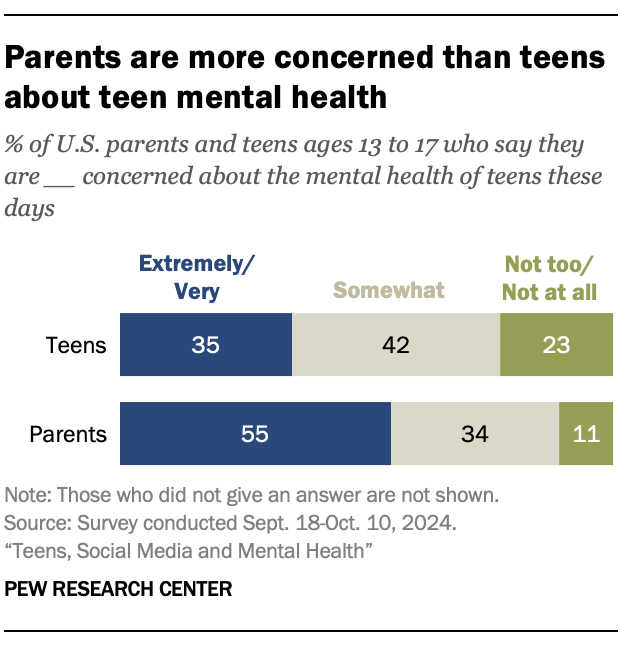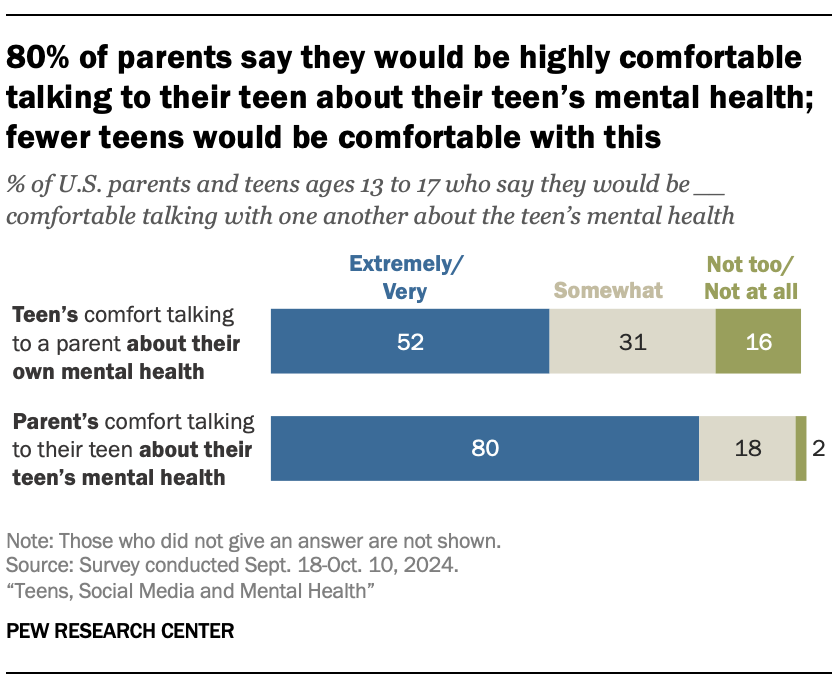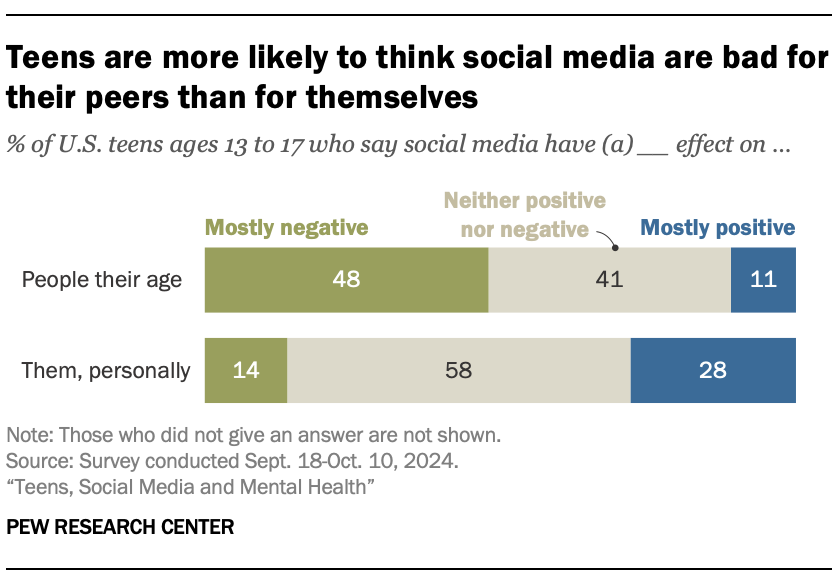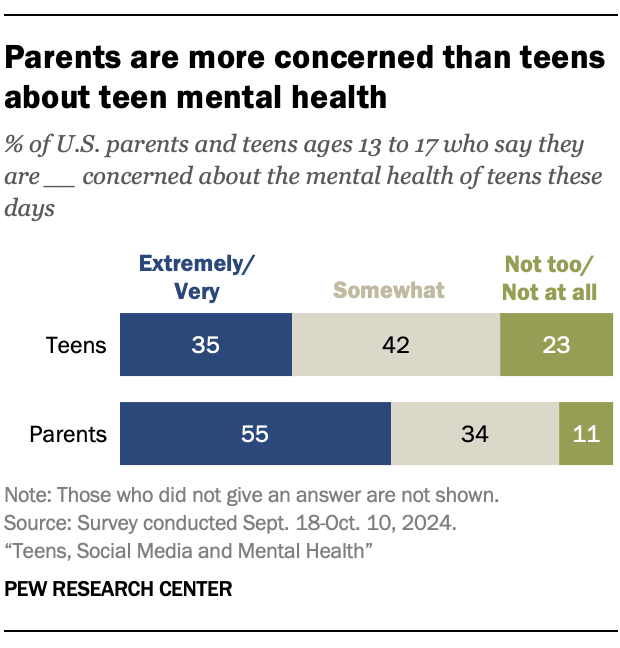Key Findings
A recent survey conducted by the Pew Research Center among 1,391 U.S. teens and parents highlights differing views on teen mental health and social media’s role. The study, conducted from September 18 to October 10, 2024, reveals that parents are generally more concerned than teens about the mental health of teenagers.
Concerns About Teen Mental Health
55% of parents report being extremely or very concerned about teen mental health, compared to 35% of teens. Parents are more likely to cite social media as a major threat to teen mental well-being, with 44% of concerned parents identifying it as the primary negative influence.

Teens, however, cite a broader range of factors, including bullying and social pressures. Black parents (70%) and teens (50%) express higher levels of concern about teen mental health compared to their White and Hispanic counterparts.
Comfort Discussing Mental Health
80% of parents say they’re comfortable discussing their teen’s mental health, while only 52% of teens feel the same. Teen girls are more comfortable discussing mental health with friends and therapists than boys.

Social Media as a Mental Health Resource
34% of teens use social media to find mental health information, with 63% of this group considering it an important resource. Teen girls are more likely than boys to use social media for this purpose.
Views on Social Media’s Impact
48% of teens believe social media has a negative impact on people their age, up from 32% in 2022. However, only 14% say it negatively affects them personally. Teens are more likely to report that social media hurts their sleep, productivity, and mental health rather than helps.

Experiences on Social Media
74% of teens say social media makes them feel more connected to friends, while 63% see it as a creative outlet. However, 39% feel overwhelmed by drama on these platforms.
Screen Time Concerns
45% of teens admit spending too much time on social media, up from 36% in 2022. 44% of teens report cutting back on social media and smartphone use.
The survey highlights the complex relationship between teens, parents, and social media, with varying perspectives on its impact on mental health and well-being.


